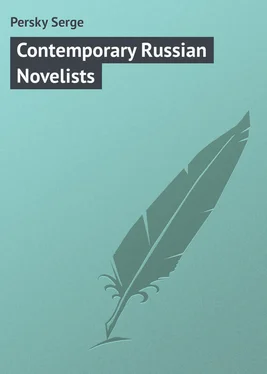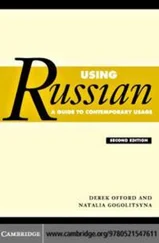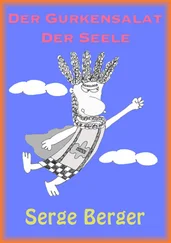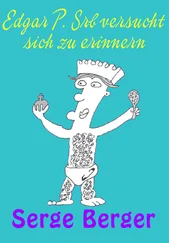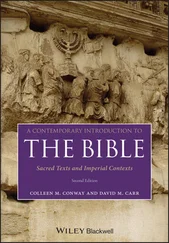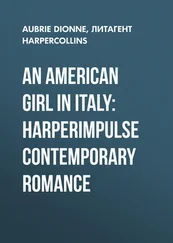Serge Persky - Contemporary Russian Novelists
Здесь есть возможность читать онлайн «Serge Persky - Contemporary Russian Novelists» — ознакомительный отрывок электронной книги совершенно бесплатно, а после прочтения отрывка купить полную версию. В некоторых случаях можно слушать аудио, скачать через торрент в формате fb2 и присутствует краткое содержание. Жанр: Русская классическая проза, на английском языке. Описание произведения, (предисловие) а так же отзывы посетителей доступны на портале библиотеки ЛибКат.
- Название:Contemporary Russian Novelists
- Автор:
- Жанр:
- Год:неизвестен
- ISBN:нет данных
- Рейтинг книги:3 / 5. Голосов: 1
-
Избранное:Добавить в избранное
- Отзывы:
-
Ваша оценка:
- 60
- 1
- 2
- 3
- 4
- 5
Contemporary Russian Novelists: краткое содержание, описание и аннотация
Предлагаем к чтению аннотацию, описание, краткое содержание или предисловие (зависит от того, что написал сам автор книги «Contemporary Russian Novelists»). Если вы не нашли необходимую информацию о книге — напишите в комментариях, мы постараемся отыскать её.
Contemporary Russian Novelists — читать онлайн ознакомительный отрывок
Ниже представлен текст книги, разбитый по страницам. Система сохранения места последней прочитанной страницы, позволяет с удобством читать онлайн бесплатно книгу «Contemporary Russian Novelists», без необходимости каждый раз заново искать на чём Вы остановились. Поставьте закладку, и сможете в любой момент перейти на страницу, на которой закончили чтение.
Интервал:
Закладка:
Persky Serge
Contemporary Russian Novelists
PREFACE
The principal aim of this book is to give the reader a good general knowledge of Russian literature as it is to-day. The author, Serge Persky, has subordinated purely critical material, because he wants his readers to form their own judgments and criticize for themselves. The element of literary criticism is not, however, by any means entirely lacking.
In the original text, there is a thorough and exhaustive treatment of the "great prophet" of Russian literature – Tolstoy – but the translator has deemed it wise to omit this essay, because so much has recently been written about this great man.
As the title of the book is "Contemporary Russian Novelists," the essay on Anton Tchekoff, who is no longer living, does not rightly belong here, but Tchekoff is such an important figure in modern Russian literature and has attracted so little attention from English writers that it seems advisable to retain the essay that treats of his work.
Finally, let me express my sincerest thanks to Dr. G. H. Maynadier of Harvard for his kind advice; to Miss Edna Wetzler for her unfailing and valuable help, and to Miss Carrie Harper, who has gone over this work with painstaking care.
I
A BRIEF SURVEY OF RUSSIAN LITERATURE
In order to get a clear idea of modern Russian literature, a knowledge of its past is indispensable. This knowledge will help us in understanding that which distinguishes it from other European literatures, not only from the viewpoint of the art which it expresses, but also as the historical and sociological mirror of the nation's life in the course of centuries.
The dominant trait of this literature is found in its very origins. Unlike the literatures of other European countries, which followed, in a more or less regular way, the development of life and civilization during historic times, Russian literature passed through none of these stages. Instead of being a product of the past, it is a protestation against it; instead of retracing the old successive stages, it appears, intermittently, like a light suddenly struck in the darkness. Its whole history is a long continual struggle against this darkness, which has gradually melted away beneath these rays of light, but has never entirely ceased to veil the general trend of Russian thought.
As a result of the unfortunate circumstances which characterize her history, Russia was for a long time deprived of any relations with civilized Europe. The necessity of concentrating all her strength on fighting the Mongolians laid the corner-stone of a sort of semi-Asiatic political autocracy. Besides, the influence of the Byzantine clergy made the nation hostile to the ideas and science of the Occident, which were represented as heresies incompatible with the orthodox faith. However, when she finally threw off the Mongolian yoke, and when she found herself face to face with Europe, Russia was led to enter into diplomatic relations with the various Western powers. She then realized that European art and science were indispensable to her, if only to strengthen her in warfare against these States. For this reason a number of European ideas began to come into Russia during the reigns of the last Muscovite sovereigns. But they assumed a somewhat sacerdotal character in passing through the filter of Polish society, and took on, so to speak, a dogmatic air. In general, European influence was not accepted in Russia except with extreme repugnance and restless circumspection, until the accession of Peter I. This great monarch, blessed with unusual intelligence and a will of iron, decided to use all his autocratic power in impressing, to use the words of Pushkin, "a new direction upon the Russian vessel;" – Europe instead of Asia.
Peter the Great had to contend against the partisans of ancient tradition, the "obscurists" and the adversaries of profane science; and this inevitable struggle determined the first character of Russian literature, where the satiric element, which in essence is an attack on the enemies of reform, predominates. In organizing grotesque processions, clownish masquerades, in which the long-skirted clothes and the streaming beards of the honorable champions of times gone by were ridiculed, Peter himself appeared as a pitiless destroyer of the ancient costumes and superannuated ideas.
The example set by the practical irony of this man was followed, soon after the death of the Tsar, by Kantemir, the first Russian author who wrote satirical verses. These verses were very much appreciated in his time. In them, he mocks with considerable fervor the ignorant contemners of science, who taste happiness only in the gratification of their material appetites.
At the same time that the Russian authors pursued the enemies of learning with sarcasm, they heaped up eulogies, which bordered on idolatry, on Peter I, and, after him, on his successors. In these praises, which were excessively hyperbolical, there was always some sincerity. Peter had, in fact, in his reign, paved the way for European civilization, and it seemed merely to be waiting for the sovereigns, Peter's successors, to go on with the work started by their illustrious ancestor. The most powerful leaders, and the first representatives of the new literature, strode ahead, then, hand in hand, but their paths before long diverged. Peter the Great wanted to use European science for practical purposes only: it was only to help the State, to make capable generals, to win wars, to help savants find means to develop the national wealth by industry and commerce; he – Peter – had no time to think of other things. But science throws her light into the most hidden corners, and when it brings social and political iniquities to light, then the government hastens to persecute that which, up to this time, it has encouraged.
The protective, and later hostile, tendencies of the government in regard to authors manifested themselves with a special violence during the reign of Catherine II. This erudite woman, an admirer of Voltaire and of the French "encyclopédistes," was personally interested in writing. She wrote several plays in which she ridiculed the coarse manners and the ignorance of the society of her time. Under the influence of this new impulse, which had come from one in such a high station in life, a legion of satirical journals flooded the country. The talented and spiritual von Vizin wrote comedies, the most famous of which exposes the ignorance and cruelty of country gentlemen; in another, he shows the ridiculousness of people who take only the brilliant outside shell from European civilization. Shortly, Radishchev's "Voyage from Moscow to St. Petersburg" appeared. Here the author, with the fury of passionate resentment, and with sad bitterness, exposes the miserable condition of the people under the yoke of the high and mighty. It was then that the empress, Catherine the Great, so gentle to the world at large and so authoritative at home, perceiving that satire no longer spared the guardian principles necessary for the security of the State, any more than they did popular superstitions, manifested a strong displeasure against it. Consequently, the satirical journals disappeared as quickly as they had appeared. Von Vizin, who, in his pleasing "Questions to Catherine" had touched on various subjects connected with court etiquette, and on the miseries of political life, had to content himself with silence. Radishchev was arrested, thrown into a fortress, and then sent to Siberia. They went so far as to accuse Derzhavin, the greatest poet of this time, the celebrated "chanter of Catherine," in his old age, of Jacobinism for having translated into verse one of the psalms of David; besides this, the energetic apostle of learning, Novikov, a journalist, a writer, and the founder of a remarkable society which devoted itself to the publication and circulation of useful books, was accused of having had relations with foreign secret societies. He was confined in the fortress at Schluesselburg after all his belongings had been confiscated. The critic and the satirist had had their wings clipped. But it was no longer possible to check this tendency, for, by force of circumstances, it had been planted in the very soul of every Russian who compared the conditions of life in his country with what European civilization had done for the neighboring countries.
Читать дальшеИнтервал:
Закладка:
Похожие книги на «Contemporary Russian Novelists»
Представляем Вашему вниманию похожие книги на «Contemporary Russian Novelists» списком для выбора. Мы отобрали схожую по названию и смыслу литературу в надежде предоставить читателям больше вариантов отыскать новые, интересные, ещё непрочитанные произведения.
Обсуждение, отзывы о книге «Contemporary Russian Novelists» и просто собственные мнения читателей. Оставьте ваши комментарии, напишите, что Вы думаете о произведении, его смысле или главных героях. Укажите что конкретно понравилось, а что нет, и почему Вы так считаете.
